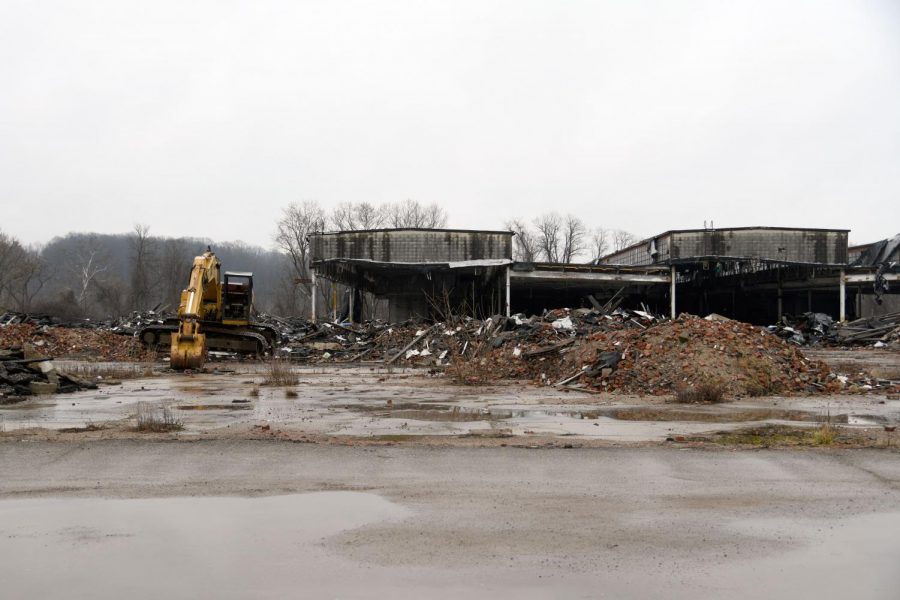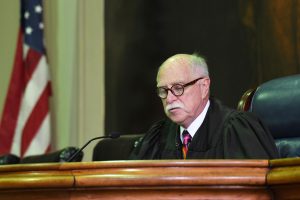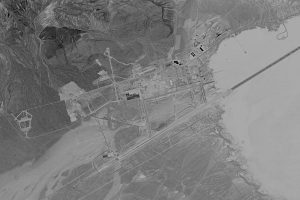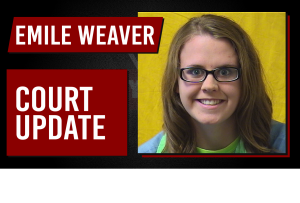City plans to purchase Linden eyesore through land bank pend court judgement
March 1, 2020
The City of Zanesville has expressed interest in a property filled with industrial waste that has become a nuisance to its neighbors on Linden Avenue for the past several years.
On Tuesday, members of the Muskingum County Land Reutilization Corporation (MCLRC) met to discuss the future of the parcel that is often referred to as the former Lear Corporation.
The property is anticipated to be sold to an interested party in the near future, pending the approval of Judge Mark Fleegle to transfer the property to the land bank.
Some leaders were expecting that signature prior to the Feb. 25 meeting.
“I still have hope that it will be soon,” said Andrew Roberts, Executive Director of the MCLRC. His sentiments were echoed by Mayor Don Mason, who was prepared to present the City of Zanesville’s proposal to acquire the former Lear property.
During his campaign, Mason expressed one of his main priorities upon taking office would be cleaning up the mess left behind at the site.
The mayor had the opportunity to make the plans public during Tuesday’s land bank meeting by explaining the City plans to make a substantial investment in the Linden area.
Mason, who grew up on West Monroe Street and Linden Avenue, spoke with many of those who currently reside in the area about their opinions of the former Lear site while campaigning.
“Time and time again, people would say ‘I don’t care if the City has to do it, that’s our tax dollars, we want our tax dollars to clean it up,'” said Mason.
Mason said the City is prepared to invest $500,000 in the 28-and-a-half acre property as proposed in the 2020 budget.
Additionally, the proposal notes the previous $740,000 investment in stormwater improvement to the area between 2015 and 2016, plus another $700,000 included in the City’s Stormwater Capital Improvements Plan that would impact an additional 50 homes in Linden West.
While addressing members of the land bank, Mason explained the decline in homeownership within the City of Zanesville over the past several decades.
According to Mason, an average of 30 homes are demolished each year through either the public or private sector, resulting in the loss of about 1,000 houses since the mayor last held office about 30 years ago.
“You lose 1,000 homes, you’re losing at least 3 to 4,000 residents,” said Mason.
The mayor elaborated that the City’s population has declined over the past three decades from 28,655 to about 22,506 residents.
“We the City really need to reverse the trend of people not building inside the City, and the way we can…change that trend is improve the quality of life,” said Mason. “This is a neighborhood that’s on the, really, threshold of total collapse or opportunity. I look at it as being a threshold of opportunity.”
Mason said the City plans to develop the 2200 block of Linden Avenue into both green space for active and passive recreation, as well as acreage set aside for private-sector development.
The elimination of such blight is predicted to increase property values in the area by 30 percent, even without redevelopment, for an additional $200,000 generated in appraised value, according to a study cited in the City’s proposal.
Going further than blight abatement, the City foresees the potential to generate even more value for the subject area pending development.
Whether such projects hold the possibility for new homes will depend on the result of an environmental assessment due to decades of contamination.
According to a 1991 EPA report, the former Lear property is part of the City of Zanesville Well Field where three municipal wells were discontinued after a 1981 investigation revealed VOC contamination in the on-site groundwater.
At the time that study was complete, United Technologies Automotive occupied the property.
The EPA found the contaminants of concern to include dichloroethylene, metals including arsenic, chromium, lead and other inorganics.
According to the acquisition proposal prepared by the City of Zanesville, the parcel was added to the National Properties List in 1983, deeming it a top priority hazardous waste site eligible for investigation and cleanup under the Superfund program.
However, as stated in the proposal, United Technologies and Lear continued operations on the property until 2008.
That same year, the property, including seven buildings, was purchased by Pelican Land Holdings, LLC for $4,000.
The property was then covered by a tax exemption through the 2009 tax year, according to the proposal.
The City states that Bloomer Candy Company operated out of one of those buildings from 2010 until 2014 before its deterioration caused the business to relocate.
After Bloomer left, the City claims the landowner began dismantling the structures on-site and leaving it in the current state of ruin that it is today.
In 2017, the City of Zanesville began filing affidavits in municipal court each day seeking penalties against Pelican Land Holdings, LLC.
“The owner took no action to improve the site’s condition and it has remained largely unchanged since 2015,” the City proposal states.
In addition to the blight, taxes have not been paid on the property since 2013.
“Taxes currently due total $264,345, with $219,544 being delinquent,” the proposal states.
In 2017, the Muskingum County Prosecutor’s Office filed to foreclose on the property due to such tax delinquency.
The property was available for sheriff’s sale twice in 2018 with no bidders.
In January 2019, the prosecutor’s office filed a motion to have the property forfeited to the State of Ohio, which was denied by Judge Mark Fleegle in March.
The land, which was then appraised at $666,000, returned to sheriff’s sale in May. Again, no bids were made.
The decision to forfeit the property lies in Fleegle’s hands once more before the land bank can proceed with future sales.




















Michael • Mar 2, 2020 at 1:27 pm
They should use the land to develop low income housing for veterans. Even if it’s just a park for tiny homes. We have a lot of homeless veterans in this city. We owe it to them to give them hand forward back to a fresh life.
Randall clark • Mar 1, 2020 at 8:24 pm
I hope the city is not considering another playground area. Development for affordable homes subdivision, or to bring new companies to the area, would be a great asset!!
Melody Lloyd • Mar 1, 2020 at 8:20 pm
Why not build an elderly low income housing development there. The elderly have only the manor to CV those.